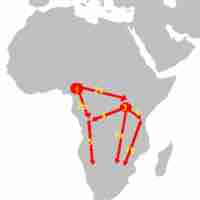Chapter 15
African Civilizations
By Boundless
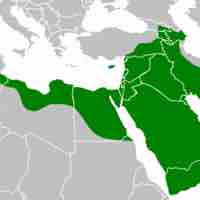
The Muslim conquest of Egypt took place shortly after Muhammad's death, but it was three centuries later, under the Fatimid Caliphate, that the region became the center of the Islamic world.
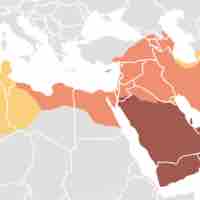
The Islamic conquest of the Maghreb region took place largely under the Umayyad Caliphate (661–750), which at the peak of its influence ruled one of the vastest empires ever to exist.
Nubia, known also as the Kingdom of Kush, was one of the earliest civilizations of ancient Northeastern Africa and home to one of the African empires that, because of its proximity to and relations with Egypt, remains a lesser known chapter of ancient history.
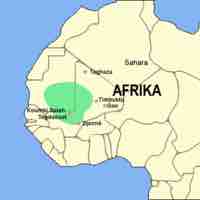
The Ghana Empire was located in what is now southeastern Mauritania, western Mali, and eastern Senegal, and derived its power from the control of trans-Saharan trade, particularly gold trade.
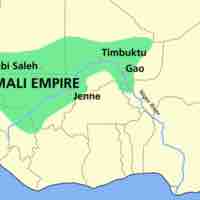
The Mali Empire was an empire in West Africa that lasted from 1230 to 1600 and profoundly influenced the culture of the region through the spread of its language, laws, and customs along lands adjacent to the Niger River, as well as other areas consisting of numerous vassal kingdoms and provinces.
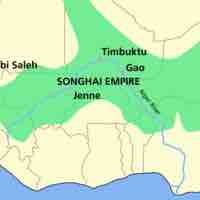
The Songhai Empire dominated the western Sahel in the 15th and 16th centuries; at its peak, it was one of the largest states in Africa.
While Ile-Ife is considered to be the spiritual homeland of the Yoruba people, numerous Yoruba states were eventually centralized within the modern Oyo Empire, which grew to become one of the largest African states.
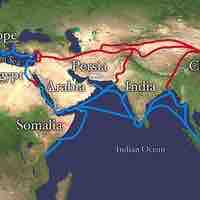
The Kingdom of Aksum was a trading nation in the area of northern Ethiopia and Eritrea that existed from approximately 100 to 940 CE.
From the Middle Ages until when Europeans colonized the territory of today's Somalia, the region was never dominated by a centralized empire, and instead witnessed the development and decline of several powerful trading sultanates whose cultures were deeply rooted in Islam.
Following the ancient kingdom of D'mt and the medieval empire of Aksum, some of current Ethiopia's territory was dominated by the Christian Ethiopian Empire established by the Zagwe dynasty in the 12th century, and later ruled by the Solomonic dynasty until the 20th century.
Today's Namibia did not witness the emergence of ancient or medieval kingdoms and empires that would largely dominate its territory, but evidence suggests that a number of diverse peoples settled there as a result of ancient, medieval, and modern migrations.
Great Zimbabwe was the capital of the Kingdom of Zimbabwe (13th–15th c.); it flourished as an international gold and ivory trade center and its architecturally unique ruins remain among the oldest and largest structures in Southern Africa.
Swahili culture originated on the Swahili Coast from the mixture of Perso-Arab and Bantu cultures that is credited for creating Swahili as a distinctive East African culture and language.
Among many fragmented communities that populated Madagascar, the Sakalava, Merina, and Betsimisaraka seized the opportunity to unite disparate groups and establish powerful kingdoms under their rule.
